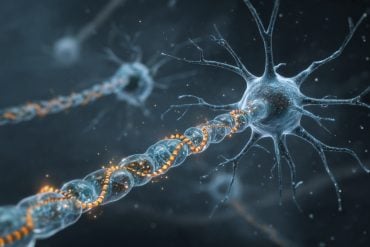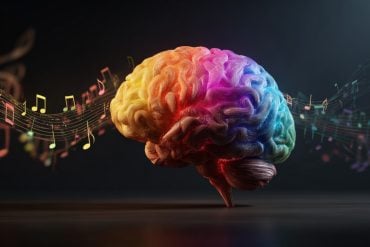Summary: Researchers proposed a groundbreaking model in the study of psi phenomena, suggesting the human brain functions as a psi-inhibitory filter. They used repetitive transcranial magnetic stimulation (rTMS) to temporarily inhibit the left medial middle frontal region in healthy individuals, observing significant psi effects as a result.
The study reveals that individuals with neurological or rTMS-induced frontal lesions show enhanced mind-matter interaction abilities. This research offers a new perspective on how the brain might suppress innate psi abilities, potentially revolutionizing our understanding of these elusive phenomena.
Key Facts:
- The study hypothesizes that the human brain acts as a filter suppressing innate psi abilities.
- rTMS-induced lesions in the left medial middle frontal region led to significant psi effects.
- This research could fundamentally change how psi phenomena are understood and studied.
Source: BIAL Foundation
Psi is a phenomenon that includes telepathy (mind-mind connections), clairvoyance (perception of distant objects or events), precognition (perception of future events), and mind-matter interactions (psychokinesis).
There are several studies that discuss the empirical evidence for psi, including arguments against their existence as their effects are small and hard to replicate under controlled experimental conditions.

To address this phenomenon, Dr. Morris Freedman’s team, supported by the BIAL Foundation, has developed a novel neurobiological model based upon the concept that the brain may act as a psi-inhibitory filter. In other words, humans may have innate psi abilities that are suppressed by this frontal lobe filter.
To test this hypothesis, he and his colleagues, Dr. Malcolm Binns, Dr. Jed Meltzer, Rohila Hashimi, and Dr. Robert Chen used repetitive transcranial magnetic stimulation (rTMS) to induce reversible brain lesions in the left medial middle frontal region in healthy participants.
In an article that was published online ahead of print in the scientific journal Cortex, called Enhanced mind-matter interactions following rTMS induced frontal lobe inhibition, Dr. Freedman and the researchers found a significant psi effect following rTMS inhibition of the left medial middle frontal lobe.
Healthy participants with reversible rTMS induced lesions affecting the left medial middle frontal region of the brain showed larger effects on a mind-matter interaction task compared to healthy participants without rTMS induced lesions.
These findings support the concept that the brain serves as a filter to block psi effects and may help explain why these effects are so small and hard to replicate in healthy participants.
“This study confirmed our hypothesis”, says Dr. Freedman, head of the Division of Neurology at Baycrest, adding that “individuals with neurological or reversible rTMS induced frontal lesions may represent a useful group for detection and replication of this phenomenon”.
For Dr. Freedman, these findings “are potentially transformative for the way we view interactions between the brain and seemingly random events” and may “significantly advance research in the area of psi, helping to bring this phenomenon into the realm of mainstream science”.
Learn more about the project “210/18 – Mind-matter Interactions and the Frontal Lobes of the Brain” here.
About this brain stimulation and neurotheology research news
Author: Craig Jones
Source: BIAL Foundation
Contact: Craig Jones – BIAL Foundation
Image: The image is credited to Neuroscience News
Original Research: Open access.
“Enhanced mind-matter interactions following rTMS induced frontal lobe inhibition” by Morris Freedman et al. Cortex
Abstract
Enhanced mind-matter interactions following rTMS induced frontal lobe inhibition
A major barrier to acceptance of psi is that effects are small and hard to replicate. To address this issue, we developed a novel neurobiological model to study this controversial phenomenon based upon the concept that the brain may act as a psi-inhibitory filter.
Our previous research in individuals with frontal lobe damage suggests that this filter includes the left medial middle frontal region. We report our findings in healthy participants with rTMS induced reversible brain lesions.
In support of our a priori hypothesis, we found a significant psi effect following rTMS inhibition of the left medial middle frontal lobe. This significant effect was found using a post hoc weighting procedure aligned with our overarching hypothesis.
This suggests that the brain may inhibit psi and that individuals with neurological or reversible rTMS induced frontal lesions may comprise an enriched sample for detection and replication of this controversial phenomenon.
Our findings are potentially transformative for the way we view interactions between the brain and seemingly random events.







